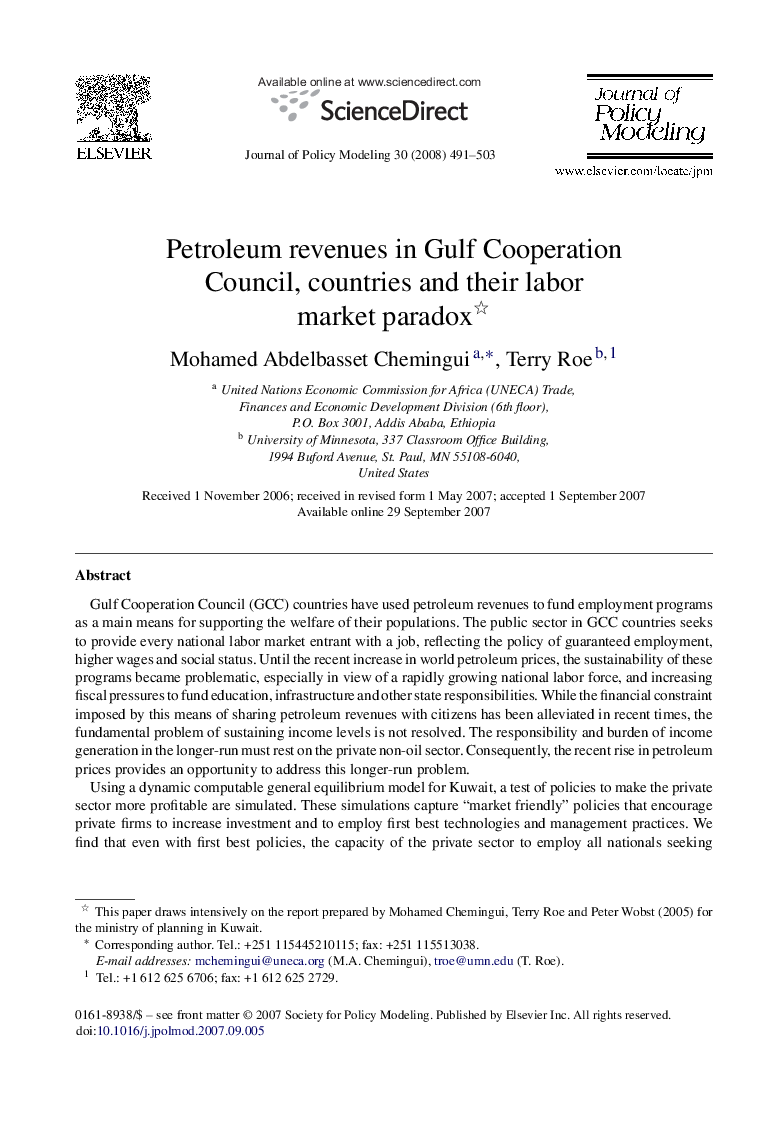| کد مقاله | کد نشریه | سال انتشار | مقاله انگلیسی | نسخه تمام متن |
|---|---|---|---|---|
| 968842 | 931669 | 2008 | 13 صفحه PDF | دانلود رایگان |

Gulf Cooperation Council (GCC) countries have used petroleum revenues to fund employment programs as a main means for supporting the welfare of their populations. The public sector in GCC countries seeks to provide every national labor market entrant with a job, reflecting the policy of guaranteed employment, higher wages and social status. Until the recent increase in world petroleum prices, the sustainability of these programs became problematic, especially in view of a rapidly growing national labor force, and increasing fiscal pressures to fund education, infrastructure and other state responsibilities. While the financial constraint imposed by this means of sharing petroleum revenues with citizens has been alleviated in recent times, the fundamental problem of sustaining income levels is not resolved. The responsibility and burden of income generation in the longer-run must rest on the private non-oil sector. Consequently, the recent rise in petroleum prices provides an opportunity to address this longer-run problem.Using a dynamic computable general equilibrium model for Kuwait, a test of policies to make the private sector more profitable are simulated. These simulations capture “market friendly” policies that encourage private firms to increase investment and to employ first best technologies and management practices. We find that even with first best policies, the capacity of the private sector to employ all nationals seeking employment during the 2001–2015 period is unlikely to be realized. A combination of a safety net and target development of business and technical skills should be part of a longer-term human capital policy.
Journal: Journal of Policy Modeling - Volume 30, Issue 3, May–June 2008, Pages 491–503